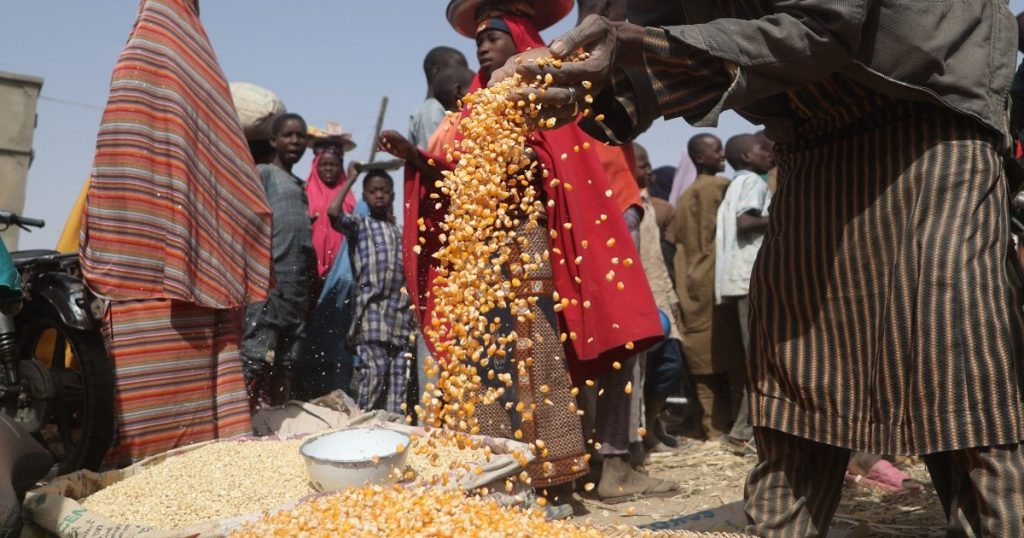The United Nations agencies have declared a food crisis in West and Central Africa due to soaring prices, with nearly 55 million people facing hunger in the coming months. The World Food Programme (WFP), UNICEF, and the Food and Agriculture Organization (FAO) attribute this crisis to double-digit inflation and stagnating local production, which have worsened economic challenges beyond the ongoing conflicts in the region. Countries such as Nigeria, Ghana, Sierra Leone, and Mali are expected to be the worst affected. The prices of staple grains have increased significantly, with some areas in northern Mali facing catastrophic hunger. Urgent action is needed to prevent the situation from spiraling out of control, with a focus on investing in resilience-building and long-term solutions for the future.
The food shortages have led to high levels of malnutrition, particularly impacting children. It is reported that eight out of 10 children between six and 23 months do not consume enough food for optimal growth and development. Additionally, over 16.7 million children under the age of five are acutely malnourished, and a majority of households cannot afford healthy diets. UNICEF Regional Director Gilles Fagninou emphasizes the importance of ensuring that every child receives proper nutrition, care, and access to a healthy environment and education. To address the root causes of malnutrition, it is crucial to strengthen systems related to health, education, water, sanitation, food, and social protection.
The region’s heavy reliance on food imports has exacerbated the food crisis, especially in countries struggling with high inflation rates like Ghana, Nigeria, and Sierra Leone. The FAO’s Sub-regional Coordinator for West Africa, Robert Guei, emphasizes the need for policies that promote and diversify local food production to address the unprecedented food and nutrition insecurity in the region. The agencies highlight the importance of long-term solutions that focus on building resilience and reducing dependence on imports to ensure sustainable food security in West and Central Africa.
The UN agencies stress the urgency of addressing the root causes of the food crisis in West and Central Africa, including economic challenges, conflict, and inadequate local food production. Immediate action is needed to prevent the situation from worsening further and to ensure that millions of people in the region have access to an adequate food supply. Investments in resilience-building and long-term solutions are key to addressing the underlying issues that contribute to food insecurity. By strengthening local food production, improving nutrition and care for children, and promoting sustainable development, the region can work towards a more food-secure future for all its inhabitants.
The UN agencies urge all stakeholders to collaborate and take action to address the growing food crisis in West and Central Africa. By working together to implement policies that support local food production, improve access to nutritious food, and strengthen systems related to health and education, progress can be made towards ensuring food security for millions of people in the region. The agencies emphasize the importance of considering the holistic needs of children and communities and implementing comprehensive solutions that address the root causes of food insecurity. With coordinated efforts and investments in long-term resilience-building, the region can overcome the challenges of the current food crisis and work towards a more sustainable and secure future for all.















